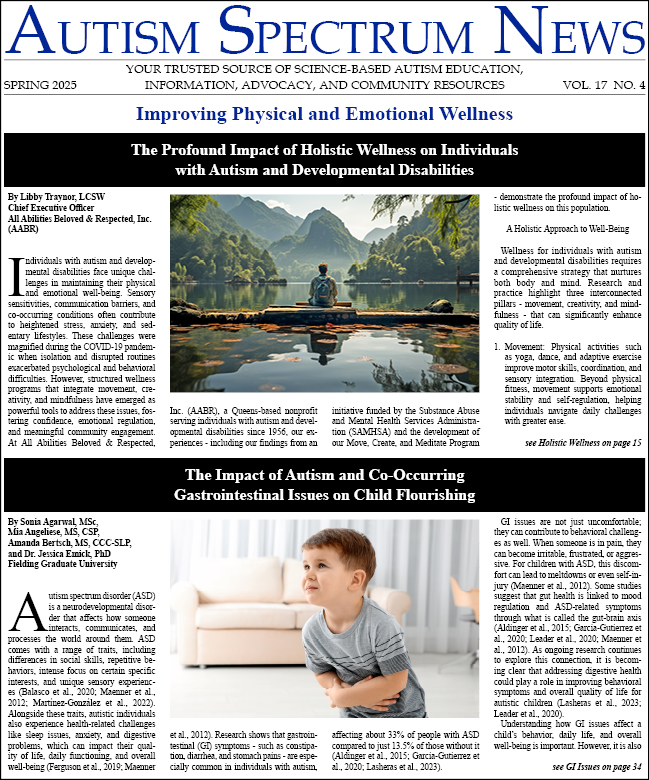-
I Was Finally Diagnosed with High-Functioning Autism, Now What?
I suspected I was on the Autism Spectrum for over 20 years before I finally received a diagnosis. Like many people with high-functioning autism, my autism went unnoticed because I was intelligent enough to succeed in school and my autistic traits were not seen as neurodivergent, but as learning...
-
Neurodiverse Couples: Making Meaningful Moments of Every Day – Having a Good Morning
Many neurodiverse couples struggle with emotional connection and intimate communication. They yearn for a romantic touch, a knowing glance, a kind gesture to make them feel close. These little things make a big difference in an intimate relationship. And when these small connecting moments do not...
-
An Exploration of Why Autistic Adults Are Practicing Consensual Non-Monogamy
Autistic people are more likely to report difficulty making and sustaining relationships,1-3 leading to assumptions that they aren’t drawn to socializing, but we now know that autistic people desire and benefit from platonic, romantic, and physical relationships to a similar degree as...
-
Autism, Technology, and Older Adults: Facing an Unexpected Set of Challenges
As an engineer who has been involved with technology his entire life, and an older adult on the autism spectrum, I have always felt that, in my case, there was always a strong connection between the two. Although the notion that autistics are generally inclined towards technology has become a...
-
How Preparing Early Improves Independent Living in Adulthood
It is never too early to prepare for any skill, but especially skills needed to live independently. Many young adults feel that moving out on their own is a rite of passage, whether that be attending college to live in a dormitory, renting their own apartment, buying their first home, among many...
-
Adult Sibling Support
Siblings often have the longest-lasting relationships of their lives with each other. With this lifelong connection, siblings have a great opportunity to support each other. In families where a person has a disability, the roles that siblings play may be different – not only in childhood and...
-
What Happens When the Teacher Is on the Spectrum? An Interview with a Pre-Service Teacher with ASD
With more and more people with ASD becoming adults, enrollment in higher education is also increasing for this population. Science, technology, engineering, and math majors are popular with students with ASD but what about education? An undergraduate education major with ASD was interviewed about...
-
How to Build a Satisfying Recreation Program for Adults with Disabilities
Andrew Auerbach, 63, has been going on weekend recreation trips with Chapel Haven Schleifer Center in New Haven, CT, since he arrived at the recreation program for adults with disabilities in 1977. Andy, who grew up on the Upper West Side of NYC, holds two part-time jobs during the week, so the...
-
Social Activities and Communities for Individuals with Autism: Meeting a Basic Human Need
Social activities, as engagement with a community to which one belongs, are an essential part of life for most people. Unfortunately, for autistics, there are often barriers that prevent them from participating in such. Before I address these issues, however, I need to emphasize that the commonly...
-
Supporting Older Adults with Autism
Autism is a lifelong diagnosis, and as adults with autism age, many of the medical, physical, and mental changes they face are similar to those of typically aging adults. As adults with autism get older, it is extremely important for family members and/or professionals working with these...




